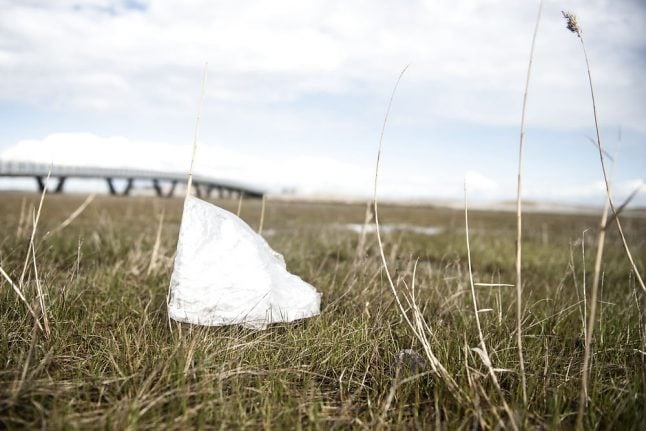A national survey, Mass Experiment 2019, resulted in the collection of 374,082 pieces of plastic waste at natural areas such as beaches, parks and in ditches, Ritzau reports.
57,000 Danish school students participated in collection of the litter.
Mass Experiment is the world’s first attempt at mapping plastic pollution for a whole country.
“The plastic found by the students is typically different types of disposable plastic,” Kristian Syberg, an associate professor at Roskilde University’s Department of Science and Environment and a researcher on the project, told Ritzau.
“Much of it cannot be recycled, which is why many people tend to throw it away in the wild,” Syberg added.
“This can also impact animals which can become stuck in it or think it is food and eat it. Then they can't distinguish it (from actual food) and get a false sense of being full and can die from hunger,” he continued.
Syberg is also spokesperson for the MarinePlastic research centre, where the project’s results have been analyzed and recorded in a database developed by the European Environment Agency.
Among other types of trash, 112,018 cigarette butts were collected, representing a third of the total litter found.
“Cigarette filters are made of cellulose acetate, which is used to make some types of plastic. This makes it difficult for nature to break them down,” said Niels Them Kjær, a project manager for tobacco prevention with the Danish Cancer Society (Kræftens Bekæmpelse).
“If the cigarette has been smoked, there is also tar in the filter, which also pollutes the environment when you throw away the butt,” he added.
Environment minister Lea Wermelin said findings are “deeply troubling”.
Wermelin noted that political action is being taken to reduce the use of plastics, including bans on cotton wool swabs, disposable cutlery and plastic straws.
Additionally, the price of plastic carrier bags has tripled, and businesses will be banned from providing free carrier bags from January 1st 2021.
READ ALSO: New laws: Here’s what changes in Denmark in 2020
The minister also said individual responsibility must be taken for the environment.
“It [the result of the study, ed.] s also something that I hope will be thought-provoking,” she said.
“And that can help to ensure a change of attitude, so that fewer pieces of plastic are thrown in our nature to the detriment of animals,” she added.



 Please whitelist us to continue reading.
Please whitelist us to continue reading.
Member comments